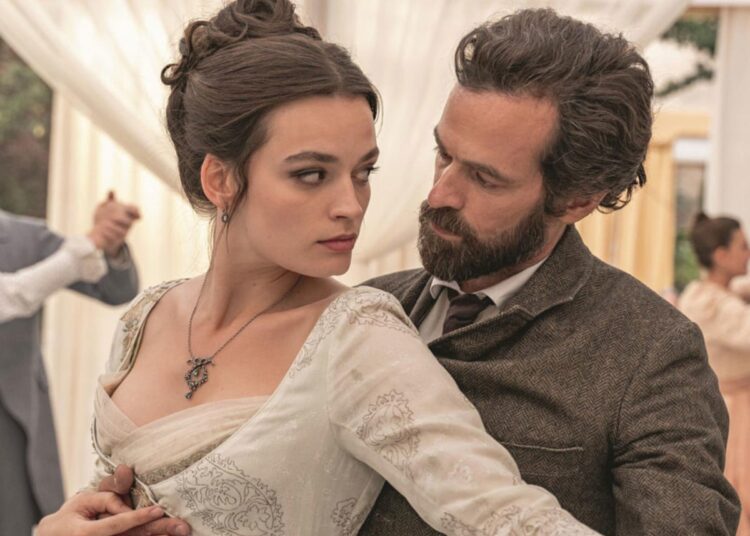As we spend the last days of summer soaking up the sun, with groups captured by the busy streets of many European hotspots, Paris remains a leading location for lovers. However, Martin Bourboulon’s historical romance, Eiffel, focuses more on the lesser-known story of the relationship between the man behind France’s most iconic monument, Gustave Eiffel (Romain Duris) and his long-lost lover Adrienne (Emma Mackey in her French debut), than on the streets of the Parisian capital. The drama tells the story you might also expect, of Eiffel’s quest to build the tower that carries his name, but chooses to give the stage to Gustave and Adrienne. It is Adrienne who inspires the design, her initial – A – crafted from 7,300 tonnes of wrought iron stamped Paris’ cityscape.
This detail is, however, fictional, and much of the film’s later events (two decades after the couple’s original meeting) are imagined by film director Bourboulon. In reality, after Adrienne’s parents called off the couples engagement, she never did return in order for them to rekindle their youthful passions. Nor did Eiffel have responsibility for the tower’s aspect, instead it was up to Eiffel’s assistants Emile Nouguier and Maurice Koechlin.
Though fictional, romance remains rife in the minds of the viewer who can imagine that Eiffel might later have thought of Adrienne (and Alice, his second cousin who he loved at nine years old) when he saw that the Tower looked like an A.
In contrast to the whimsical 19th-century romance depicted through flashbacks from both Gustave and Adrienne’s perspective, Gustave also has to contend with the (more historically correct) countless naysayers, striking workers and financial setbacks as he pushes to master the construction of the Eiffel Tower. Bourboulon transports us intermittently to the construction site, where the metal structure gets progressively taller as men toil away and Gustave deliberates over architectural drawings with a furrowed brow. Gustave’s capabilities are undoubtedly impressive, having just finished the Statue of Liberty and already on to another masterpiece that will irrevocably change the skyline (and many, many souvenirs) in the heart of France.
The film struggles to play homage to the historical context, inventing storylines to inject the vital amount of romance into our system. Perhaps this is fitting, an ode to the “City of Love” for everyone’s summer of love, but you can’t help but feel like a less clichéd approach would have been better than the corset-twanging corniness against fireplace backdrops and Parisian sunsets.
Check out more Entertainment Now movie news, reviews and interviews here.






